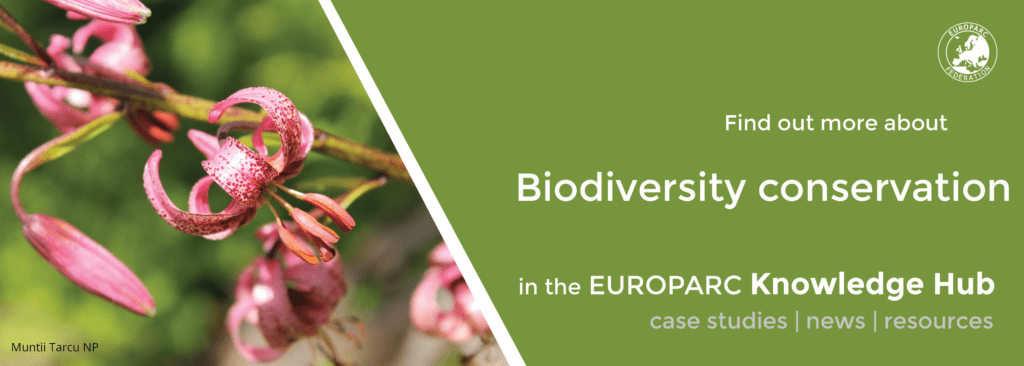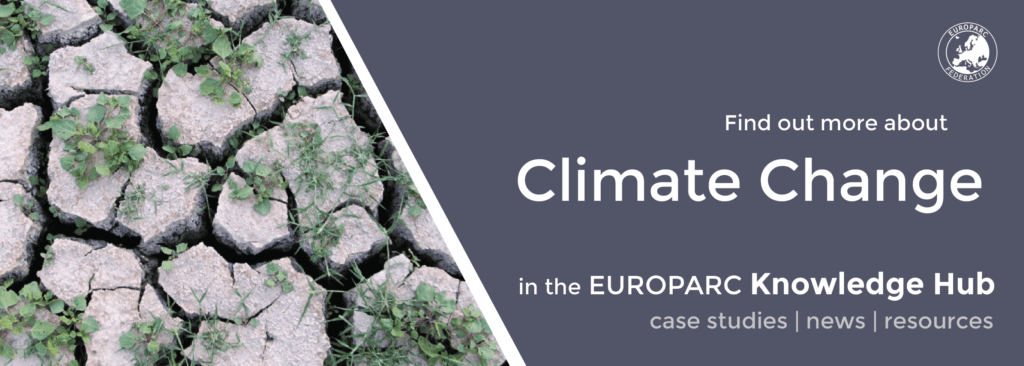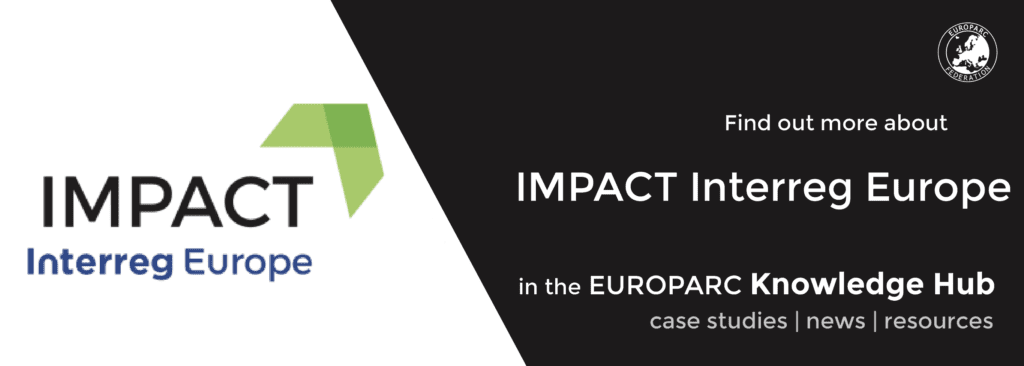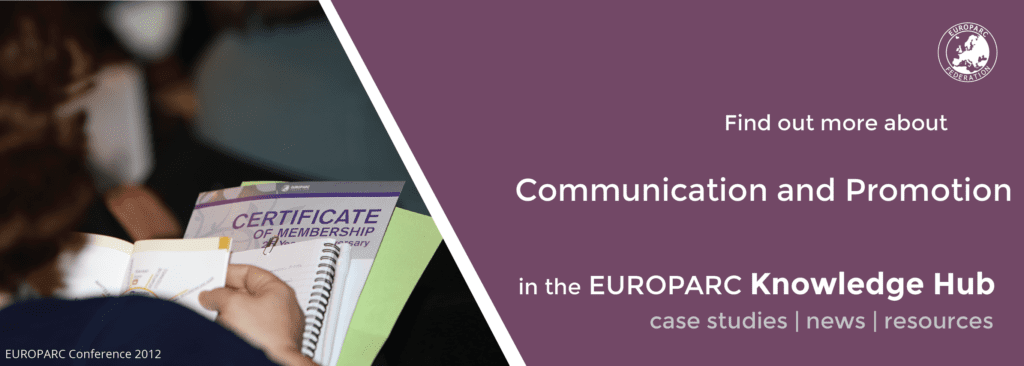What do you know about “Biological Field Stations”? – The OBFS Conference for the 1st time in Europe
CMK. Center For Environmental Sciences - Photo: Hasselt University
Get to know about the Organisation of Biological Field Stations (OBFS) a non-profit international network with more than 50 years of experience supporting their members maximizing diversity, inclusiveness, sustainability, and transparency, in a special conference host by EUROPARC member Hoge Kempen National Park in Belgium.
For the first time in Europe…
From the 9th to the 13th of September, the Hoge Kempen National Park (Belgium) will host the yearly conference of the Organisation of Biological Field Stations (OBFS), organised by the Field Research Centre Hasselt University. OBFS has the mission to help member stations increase their effectiveness in supporting critical research, education, and outreach programs and their annual Conference is a gathering of field stations managers and researchers,
- What? Yearly Conference of the Organisation of Biological Field Stations (OBFS)
- When? 9-13 September 2019
- Host: Field Research Centre Hasselt University
- Where? Maasmechelen, Zetellaan 52 (and Home Fabiola Maasmechelen)! Group accommodation in a Field Station setting.
- Who? Field station directors and managers (and researchers)
- Expected number of participants: 130 pp (70% USA; 30% Europe, South-America, and Africa)
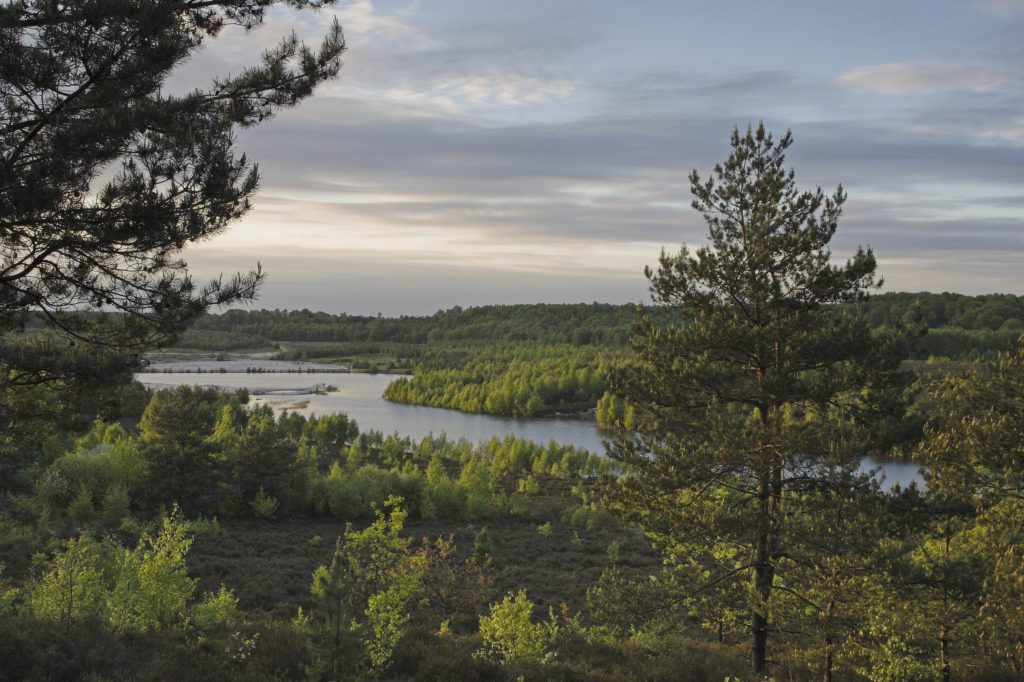
Kikbeek Valley – Hoge Kempen National Park
But what are “Biological Field Stations”?
Spread throughout the world, the Field Stations serve as living libraries or outdoor laboratories aiming to understand natural processes at every scale, from the molecular to the global, from milliseconds to eons. They depend upon the support and involvement of the community- formed by students, researchers, and the general public interested in the environment.
Field stations are places where we can read the book of life in the language in which it was written.
– James Kirchner, UC Berkeley
Biological Field Stations_brochure
They vary greatly in heir form, extension, and even purpose, but they all share the same commitment to advancing our understanding of the Earth by supporting research, teaching, and public education. The range goes from marine laboratories whose focus is offshore, to terrestrial reserves dedicated to protecting key ecosystems. They serve not only as a research center but also as a scientific education resource.
Field stations play a vital role in the local communities, both encouraging staff, and researchers in taking part in local and regional decisions to make sure the environment is taking into account. And providing facilities and useful scientific data to improve the local knowledge about the environment, supporting governmental and other stakeholders address environmental-related issues.
Don’t miss the date and discover the workshops, field trip and more of this conference in the official Website of the OBFS
Call for applications: Climate Change Task Force
Photo by NASA
CALL FOR APPLICATIONS IS NOW OPEN
Would you like to get involved? By joining this participatory expert group, you will contribute actively to innovating in the field of protected area management, meet other experienced conservation professionals from across Europe and help to tackle climate change challenges both on the ground and in the policies.
If you are interested, please APPLY HERE by September 5, 2019
It will only take a minute and you do not commit to anything for now.
Climate Change Task Force: BACKGROUND
Climate is changing. Should protected area management change too? To address this thorny question, EUROPARC, Réserves Naturelles de France, and eight other partners have come together in a LIFE Climate Action project called “Natur’Adapt”. The vision is that it is possible to transform this challenge into an opportunity to innovate and support positively nature conservation practice.
Natur’Adapt aims at triggering a transition towards the adaptive management of protected areas, while laying the foundations of a dynamic collective learning process.
This 5-year project [LIFE17 CCA/FR/000089] is developed with the support of the LIFE program, the French Agency for Biodiversity and the French Ministry for Ecological Transition. Read more about Natur’Adapt
What is the EUROPARC Climate Change Task Force?
In the framework of Natur’Adapt, we have foreseen the creation of a task force to provide advice during the course of the project and support the emergence of a debate on climate change adaptation at a European level and within EUROPARC’s network.
The Climate Change task force will help Natur’Adapt project team to translate technical needs into a strategic vision for European and national policy makers.
The task force will also provide the baseline for a wider dissemination of results and practical actions for a successful implementation of project outcomes in other European countries.
The task force will be composed of up to 8 participants namely, protected area managers and experts from across Europe, a representative from Reserves Naturelles de France and EUROPARC project manager take care of the coordination.
Why do we do it? [mission]
This Task Force is established as part of the project Natur’Adapt. It is in line with the priorities identified in the EUROPARC Strategy 2015-2021 contributing to achieve the objectives set in priority area 3.4 Climate Change in Protected Areas ( Actions 3.4a and 3.4b).
The main reason to set up this group of expert is:
- To provide advice and bring further expertise within the Natur’Adapt project;
- To contribute to raising awareness among decision makers and EU institutions about Climate Change impact on biodiversity and needs for adaptation strategies;
- To provide guidance and promote action for Climate Change Adaptation within the European network of protected areas.
How do we do it? [workplan]
To achieve these objectives, the Climate Change task force, a participatory expert group, will review and advise the project team at specific stages of the project development and participate to produce a number of communication tools adapted to a European audience.
Practically the task force is planned to meet annually for a 1-day face-to-face working session and to meet virtually when necessary.
Note: Participation to this task force is on a voluntary basis. No financial compensations have been foreseen for the time spent and work done. Travel expenses to and from face-to-face meetings will be covered.
What do we do concretely? [Planned outputs & indicators]
Previous experiences show that setting concrete deliverables and schedule is a must. Here is a working proposal to start with. Deliverables and schedule will be revised with the members of the group once they have been identified.
(Yearly) Produce and publish internally a yearly review of the project deliverables (Exact timing to be aligned with key project’s milestones.
(October 2020) Produce a draft white paper for decision makers (at EU level and local? National?) on how to support nature conservation in a changing climate in Europe, and disseminate it to EU institutions, national MEP and ministers of environment.
(March 2021) Develop the structure and key features of a Climate Change Adaptation toolkit for European protected area managers. The content will be produced and published by the project team and EUROPARC.
(October 2021) Organise and participate in a seminar dialogue with European Institutions (Member European Parliament, DG Envi, DG Clima, DG Agri, DG Growth, Council of Europe)
(Ad hoc) Contribute to Technical Workshops at EUROPARC Annual Conference.
Who is participating? [potential members]
– Up to 6 Protected Area managers and/or conservation/climate change experts
– RNF representative and Natur’Apdapt Project coordinator
– EUROPARC’s project manager who will coordinate the task force (meeting planning, facilitation, reporting, …)
The ideal participant should:
– Be enthusiastic about turning the climate change challenge into an opportunity to innovate and support conservation and restoration of ecosystems in Europe.
– Have experience in or knowledge about: Climate change and protected areas management and/or in climate change vulnerability assessment and/or adaptation planning and/or adaptation measures implementation and/or policy-making at EU or Local Level
– Originate from a European country. Diversity of perspectives is important.
– Be proficient in English is a must.
Note:
– While constituting this expert group priority could be given to EUROPARC and RNF Members
– CVs of group members should be submitted when the request for the establishment of the task force is submitted or soon thereafter.
Frequently Asked Questions
Why does EUROPARC have commissions and other participatory groups?
The EUROPARC Federation is a membership organisation. It exists to serve the needs of its members as they have been identified in the statutes of the organisation and its recently approved strategy.
As part of the Federation governance and structure, we have selected participatory task forces as a powerful tool to involve members, leverage existing knowledge, good practices and networks.
What makes a good group?
Groups working together with a common purpose, are good for people in that they can provide members with important social interaction, support and enriched opportunities for learning.
A well-functioning participation group: can be good at finding problems; promoting innovation; can make better decisions than individuals on some kinds of tasks; can be good tools for implementation, in that group decisions to which members are committed will be carried out willingly; can also help fend off the negative consequences of large organisational size, by keeping communication lines short and hierarchies relatively flat.
How do task forces usually work?
The Chair and the Directorate will agree on specific work plan. This plan would include:
– Strategic theme addressed by the task force & objectives,
– planned outputs over 2 years
– indicators
– potential members if the proposal comes from a group of members,
– resources, and potential sources
– Plan of meetings, schedule of work will be agreed with the Directorate and the group.
How will financial expenses be compensated?
Procedures for eligible expenses and reimbursements will be provided. The Climate Change Task Force activities will be supported with travel and subsistence expense costs within a given agreed allocation, according to with the project budget and LIFE program rules and procedures.
If you are interested, please APPLY HERE by September 5, 2019
It will only take a minute and you do not commit to anything for now.
Making an IMPACT: a workshop you can’t miss @ the EU Week of Regions & Cities 2019
Workshop “Making an Impact: Putting protected areas at the heart of EU policies for the sustainable development of regions and cities”
Protected Areas were established to protect and preserve biodiversity and the ecosystem services they provide us, however, that doesn’t make Protected Areas places where human activities are not allowed, in fact, during our whole history, those
human activities have created and shaped the landscapes and ecosystems we see, enjoy and that still today provide us with food, freshwater, and spaces to relax and reconnect with nature.
There are so many human activities that if well-managed can grant benefits for both ecosystems and society: such as creation of green-jobs. That is the aim of the project IMPACT #InterregEurope. To create innovative models for Protected Areas. Thank to the project, many examples of good practices on sustainable development have yet been recorded.
For the European Week of Regions and Cities, we will answer to the question…
What can protected areas do to promote sustainable development in both regions and cities?
During this workshop, we will share the best good practices of IMPACT #Interreg Europe, putting Protected Areas as engines of regional sustainable development. We will hear about innovative ways to involve local stakeholders in socioeconomic activities. We will also learn about a successful protocol to promote sustainable tourism in protected areas. Lastly, we will discover how a Periurban Protected Area can play a decisive role in several EU policies to promote sustainability in urban regions.
The workshop will be followed by a networking session during which the IMPACT partners will share their best good practices and we will further discuss this topic.
Speakers: Jean-Marc Dujardin, Teresa Pastor, Stefania Petrosillo, Javier Soto Vázquez
Partner/s: EUCC – Baltic office, EUROPARC Federation, Espaces Naturels Régionaux, National Institute for Research and Development in Tourism of Romania, Regione Molise
Don’t miss the date, Free registrations are open!
8th of October 2019 – Building SQUARE – Brussels Convention Centre, Room Hall 300
Workshop web here, registrations and further information about the European Week of Regions and Cities also available in the official Website.
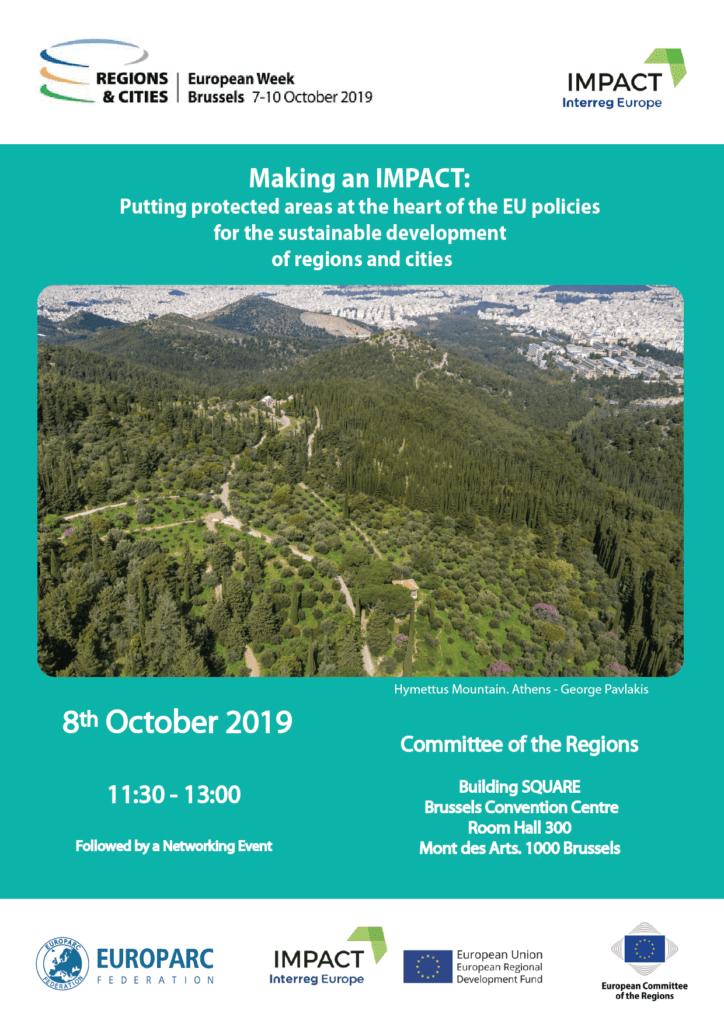
“Undisturbed”: UK runs campaign to “educate” wildlife photographers and drone operators
Wildlife photographer, photo from pixabay
The UK National Wildlife Crime Unit is running a social media campaign targetting wildlife photographers and drone operators… to leave wildlife “undisturbed”. This is the story of their campaign, published in the “Countryside Jobs Service”.
Leave wildlife #undisturbed
Due to the latest advances in technology and more affordable prices in equipment, photography and filming are fast becoming a popular activity in European Protected Areas. Furthermore, in some cases, the use of drones has proved to be a powerful tool for Protected Area professionals, able to provide different types of information in a cost-effective manner.
However, photographers without knowledge of wildlife behavior are approaching animals and popular places for them in search of new pictures – and if the approach is too close and invasive, it could lead to sudden behavior changes of the species, and cause harmful effects on biodiversity.
Some incidents so far reported include causing seal colonies to stampede into the sea, seabirds fleeing cliff ledge nests, dolphins changing behavior due to vessels and raptors lifting from nests due to human presence. In the case of drones, flying close to the animals could cause panic and unnecessary stress.
These incidents were not only seen in Protected Areas, where visitors are usually monitored and controlled, but especially in non-managed areas, where surveillance and enforcement are often absent.
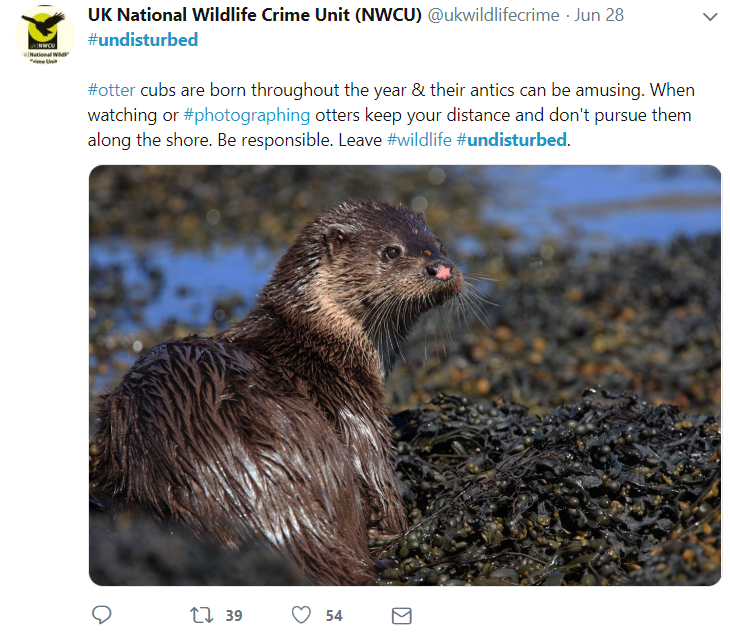
A crime prevention campaign
Under the name of Undisturbed, the UK National Wildlife Crime Unit (NWCU) launched in May 2019 a social media crime prevention campaign. It aims to sensitize wildlife photographers and drone operators about the risks when approaching wildlife to guarantee the welfare of the animals.
This measure complements the UK legislation. The Wildlife and Countryside Act 1981 and Conservation Regulations 1994 sanctions those who intentionally or recklessly disturb protected species with fines that can reach to £5,000 or even 6 months imprisonment. In fact, in the UK, management of wildlife is a devolved power, so the competent authority is allowed to apply licenses to cause disturbance for the purposes of photography. The licenses prevent the photographers from committing an infringement if the animal is disturbed.
Laurie Campbell has over 40 years of experience as a photographer and confirms the rise in the number of wildlife disturbance incidents cause by other photographers. She advises:
As far as possible, one should always research the species of bird or mammal in advance and to determine its protected status within law before attempting to photograph it. Recognising the signs of stress and being aware of any changes in the natural behavior of any animal is vital, both to judge how close you may approach safely, and when to back away. Regardless of whatever the protected status of the species may be, its welfare must always come before the desire to photograph it.
Lou Hubble, Chief inspector and head of the NWCU and Chief says:
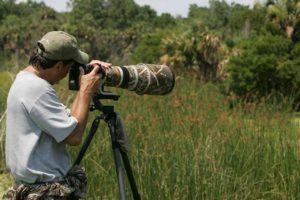
Photo by pixabay
“Wildlife is amazing! It is a real privilege to see animals and birds in their natural habitat. We have such a diverse range of species throughout the UK and it is only natural to want to get close to them. However, this initiative serves to remind people that disturbance could be a criminal offense. Please be responsible when photographing or filming wildlife and birds and allow others to enjoy the experience as you have.”
The campaign is supported by the Partnership for Action against Wildlife Crime in England & Wales, Scotland and Northern Ireland respectively and incidents of disturbance should be reported to the UK’s Police by dialing 101.
You can check the Undisturbed campaign in twitter following @ukwildlifecrime and follow the hashtag #undisturbed
